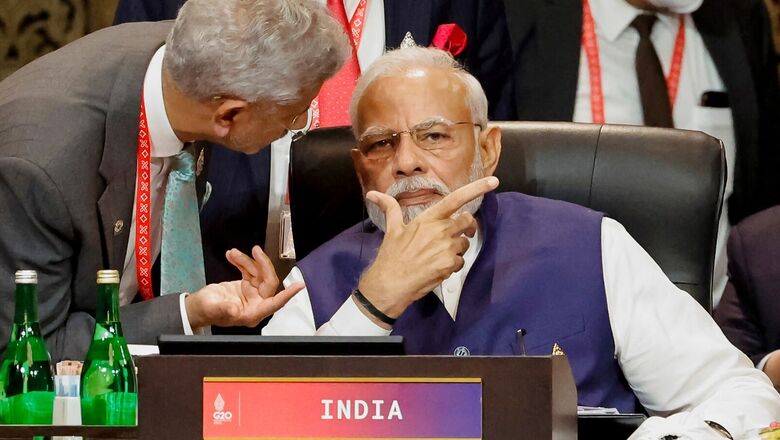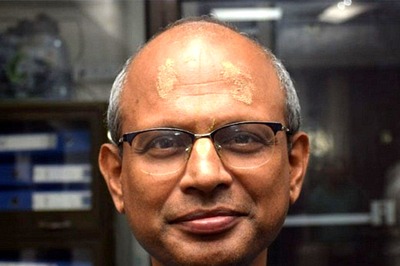
views
As India assumes the presidency of the G-20, are we focusing enough on the one ingredient that is usually the most overlooked in our national armoury of putting our best put forward on the international stage: Soft Power.
It is essential to remember that India is as much a nation as it is a civilisation. As an independent Republic, we are young; as a civilization, we are among the most ancient. As a nation we are the world’s largest democracy; as a civilization, we have evolved on the basis of moulik soch, the power of original thought. Thus, we have all the ingredients to become a soft power superpower. But to do this we have to give this vital goal the attention it deserves, and the planning and resources that it requires.
Antiquity, continuity, diversity, assimilation and peaks of refinement mark our civilisation. In the present, our nation’s survival as a democracy is a remarkable achievement, given the dire predictions being made in 1947 of how long this will last, considering the size and complexity of India. But even though many other newly independent countries soon jettisoned democracy, we did not. What is even more remarkable is that we managed to chalk up economic growth while remaining a democracy. True, our economic development could have been faster, more inclusive, and substantive. True also that our democratic functioning is not blemish-less, and needs reforms. But the fact is that the Great Indian Experiment has not failed. We have remained a democratic nation, and our civilisational legacy is still intact.
There is much, therefore, that India can, through its soft power, project to the world, especially when we are hosting the meeting of the twenty most powerful nations of the world. A myth that needs to be busted is that soft power and hard power are antithetical to each other. Actually, they are complementary. Each reinforces the other. Hard power is in your face, statistically verifiable, and data-driven. Soft power requires imagination, creativity, subtlety, and ingenuity to be projected credibly. This requires a special vision.
One thing is certain: Bollywood and chicken tikka cannot be our principal brand ambassadors to the world. I have nothing against either. In fact, I quite enjoy having a tikka or two while watching a Bollywood film. But that is not the point. A civilisation that has so much to offer in terms of the richness of its cultural artefacts and the profundity of its spirituality and philosophy, must seriously broad base its cultural projection. In doing this, the stage is past when we relied mostly on periodic cultural performances and exhibitions to showcase our heritage. The time has come to explain to the world, in an organised, planned and sustained thrust, the amount of cerebral energy that has for millennia gone into the unique tradition of our music, dance, sculpture, architecture, painting, literature, theatre, textiles, and myriad forms of craftsmanship. We need to explain the deep philosophy and thought underlying our entire spectrum of artistic endeavours, and the fact that India was the first civilisation to develop the science of aesthetics, rasa, on which there is an entire chapter in Bharat’s Natya Shastra, written in 200 BCE. Performance and explication must go together, including through short films, competent guides and lecture-demonstrations, to take the appreciation of our soft power beyond exotica to genuine respect.
Second, we need to allocate resources. The Ministry of Culture is inadequately budgeted, and even the meagre amount allotted to it is not fully spent. Institutions like the Indian Council of Cultural Relations (ICCR) — which like the British Council, United States Information Service (USIS), the Goethe Institute of the Germans, Mexico’s Cervantes Institute and China’s Confucius Centres — is meant to propagate Indian cultural abroad, has little or no money beyond fixed administrative needs. For a country whose calling card since the dawn of time is culture, this is a dismal commentary. Obviously, things cannot be rectified overnight, but a concerted and innovative attempt needs to be made — beyond more of the routine — to more meaningfully and comprehensively project our civilisational soft power during our G-20 presidency, and new plans for this need to be drawn up immediately.
The second aspect of soft power is political. The world respects India because it is a democracy, and sui generic in the manner in which it has been a crucible for plurality, diversity, tolerance, co-existence and inclusion, a country which is multi-ethnic, multicultural, and multi-religious. The challenge here is to demonstrate our unity in diversity. It is a colonial argument that India is just a collation of sporadic diversities created into a nation by the British. What we have to project is a celebration of our diversity while simultaneously stressing our civilisational unity. This is a sophisticated project, and cannot be achieved merely by verbal hyperbole. It requires deep application of mind, so that the net impression gathered by our distinguished foreign dignitaries is, that as a nation-civilisation we are as much as a salad bowl as a melting pot, where diversities flourish yet meld into one verifiable whole.
The G-20 presidency provides an opportunity to completely revamp the priority we have thus far given to soft power, and radically restructure the manner in which we pursue it. This will pay us dividends, not only during the G-20, but thereafter, and help considerably in giving India its real place as the cradle of civilisation, which deserves the title of Vishwa Guru.
The author is a former diplomat, an author and a politician. The views expressed in this article are those of the author and do not represent the stand of this publication.
Read all the Latest Opinions here

















Comments
0 comment